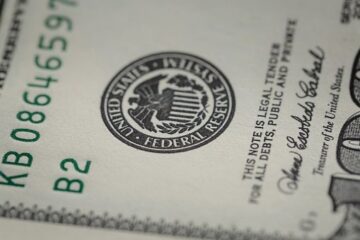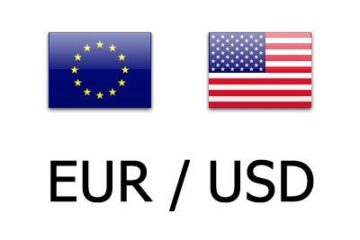Bank of America (BAC) has finally addressed what’s on the minds of many consumers across the country.
When President Donald Trump announced “Liberation Day” tariffs on multiple countries on April 2, the U.S. stock market lost roughly $3.1 trillion in market value the following day, its largest decrease since March 2020.
💵💰Don’t miss the move: Subscribe to TheStreet’s free daily newsletter 💰💵
Trump believes that these tariffs, which are taxes companies pay to import goods from overseas, will encourage more manufacturing in the U.S.; however, they can also inflate the prices of goods.
Related: Jamie Dimon sounds alarm on recession concerns
Many consumers are already concerned about Trump’s tariffs having a negative impact on their finances and the economy.
According to a recent survey from market research company Numerator, 83% of consumers said that they will adjust their shopping habits to prepare for the high prices Trump’s tariffs could bring. Some of these changes include searching for sales and coupons, delaying purchases, stocking up on items, etc.
Also, 72% of consumers said they are “very or somewhat concerned” about a recession occurring in the coming year.
A person walks past a Bank of America location.
Image source: Shutterstock
Bank of America makes a surprising prediction
Amid increased anxiety over the economy, Bank of America Chief Financial Officer Alistair Borthwick said during a recent call with reporters that the bank does not see a recession on the horizon, according to a new report from Barron’s.
“Client concerns over trade policy and recent market turmoil have grown,” said Borthwick during the call. “Still, our research team at this point doesn’t believe we’ll see a recession, and our clients continue to show encouraging signs. Employment is obviously healthy, and consumers have proven resilient.”
Related: Mark Cuban has a harsh message for tariff supporters
He emphasized that even though the company’s economists have noted some of the growth estimates, they “don’t see a recession at this point.”
Bank of America CEO Brian Moynihan reiterated this belief during a recent earnings call. He specifically highlighted recent consumer data, claiming that “the consumer keeps pushing money into the economy.”
“But going more to what our customer data shows, it shows that the money moving across all our consumer spending methods, debit and credit cards, ACH, checks written, Zelle, etc., all that aggregate shows it grew about (a) 4.4% pace in the first quarter of 2025 compared to the first quarter of 2024,” said Moynihan.
JPMorgan Chase predicts the opposite
The comments from Bank of America’s leadership come after JPMorgan Chase (JPM) CEO Jamie Dimon warned in his annual letter to shareholders that the U.S. economy had already been “weakening” before Trump announced tariffs.
“The economy is facing considerable turbulence (including geopolitics), with the potential positives of tax reform and deregulation and the potential negatives of tariffs and ‘trade wars,’ ongoing sticky inflation, high fiscal deficits and still rather high asset prices and volatility,” said Dimon.
More Tariffs:
Mark Cuban sounds alarm on how consumers should handle tariffsTarget makes controversial move to dodge high tariff costs Walmart doubles down on harsh tactic to shrink threat of tariffs
Dimon also said that whether tariffs would cause a recession “remains in question,” but he warned that they will “slow down growth.”
“The recent tariffs will likely increase inflation and are causing many to consider a greater probability of a recession,” said Dimon. “And even with the recent decline in market values, prices remain relatively high. These significant and somewhat unprecedented forces cause us to remain very cautious.”
JPMorgan Research recently announced in a press release that the probability of a recession this year stands at 60%, which is higher than the 40% it previously predicted.
The research team flagged that even though Trump announced on April 9 a 90-day pause on reciprocal tariffs on all countries (except China), dropping them to a universal rate of 10%, the remaining tariffs still pose a threat to the economy.
“The latest unwinding of the Liberation Day tariffs reduces the shock to the global trading order, but the remaining universal 10% tariff is still a material threat to growth, and the 145% tariff on China keeps the probability of a recession at 60%,” said JPMorgan Research in the press release.
Related: Veteran fund manager unveils eye-popping S&P 500 forecast


